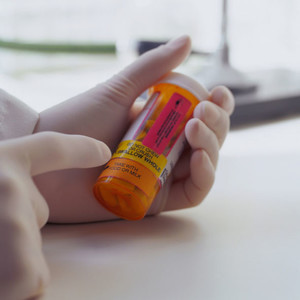A commentary published in Value in Health by Dr Sean D Sullivan of the University of Washington School of Pharmacy offers insights into Medicare drug price negotiation [1]. The commentary discusses the implications of negotiation [2] and asks the question, ‘what next?’
In 2022, The Inflation Reduction Act (IRA) (Public Law 117-169) was signed into law in the US. This is designed to empower the US Secretary of Health and Human Services (HHS) and enable them to develop and implement methods and a process to negotiate a limited number of prescription drug prices in the Medicare programme directly with manufacturers [3]. Under the negotiation programme, the US government will select 10 Part D drugs for negotiation for initial price applicability in year 2026, and scale up to 20 Part B and Part D drugs by 2028 [3].
What next?
Implications
Dr Sullivan notes that the HHS will now delegate rules and procedural authority to the Centers for Medicare and Medicaid Services (CMS) to implement a new law. Normal rule-making procedures will be followed, including public notification and an open comment period on proposed rules. Programme instructions will also be used to provide guidance or inform on procedures and methods for operationalizing programme policies. However, these instructions do not follow typical processes and transparency of rulemaking, potentially excluding important stakeholder groups. To build and manage the programme, CMS will need to quickly hire staff with varied training and experiences, including health economists and drug policy and pricing experts.
Using reference prices?
It is also highlighted that US citizens strongly support federal efforts to reduce drug prices including authorizing Medicare to negotiate with manufacturers or benchmarking prices to those paid by other countries. The Trump Administration's proposed international reference pricing for the top 50 drugs in the Medicare Part B programme was called the ‘Most Favored Nation Model’ but was stopped by legal challenges from the pharmaceutical industry as of 1 January 2021. Despite this, there are still questions about whether CMS will use externally referenced prices from other countries or internal price referencing from other programmes like the VA and 340B to negotiate drug prices. While explicit referencing may subject CMS to legal challenges, there is nothing prohibiting them from collecting and using these prices.
Legal and political considerations
It is likely that the industry and its supporters will challenge the IRA in court due to the use of reconciliation to enact the law by Congress. The possibility of a repeal or modification of the law also exists if a new administration is elected in 2024, as some Republicans have suggested. If the law is successful in lowering prices, there may be a push for Congressional expansion of the programme or access to maximum fair price by states facing budget shortfalls or elected politicians. As a result, Medicare price negotiation will continue to be a political agenda item due to overall price trends and the pressure to increase transparency and formalize negotiations.
In conclusion, Dr Sullivan summarizes that, although the number of affected drugs may be limited initially, Medicare price negotiations will have far-reaching effects on the market. The implementation of the programme and its development by CMS will be critical. He finalizes by quoting CMS Deputy Administrator and Chief Operating Officer Jonathan Blum, ‘The law is clear, relatively, for how we define which drugs are eligible for negotiation, at least in the first couple of years’. And it is ‘clear on what happens if CMS and manufacturers don’t reach agreement. But how we come to that process will be work that CMS has begun and it will become much more defined over time’.
Related articles
Regulating drug prices in Medicare unlikely to lead to ‘revenue targeting’
A small number of drugs account for most of Medicare spending
|
LATIN AMERICAN FORUM
The new section of the ‘Latin American Forum’ on GaBI has been launched. The objective of this new section is to provide you with all the latest news and updates on developments of generic and biosimilar medicines in Latin America in Spanish. View the latest headline article: Declaración conjunta sobre biosimilares en enfermedades inmunomediadas en España Browse the news in the Latin American Forum! Register to receive the GaBI Latin American Forum newsletter. Inform colleagues and friends of this new initiative.
FORO LATINOAMERICANO
Se ha lanzado la nueva sección del ‘Foro Latinoamericano’ sobre GaBI. El objetivo de esta nueva sección es brindarle las últimas noticias y actualizaciones sobre desarrollos de medicamentos genéricos y biosimilares en América Latina en español. Ver el último artículo de cabecera: Declaración conjunta sobre biosimilares en enfermedades inmunomediadas en España !Explore las noticias en el Foro Latinoamericano! Regístrese para recibir el boletín informativo GaBI Foro Latinoamericano. Informe a colegas y amigos sobre esta nueva iniciativa.
|
References
1. Sullivan SD. Medicare drug price negotiation in the United States: implications and unanswered questions. Value in Health. 2023;26(3):394-9.
2. GaBI Online - Generics and Biosimilars Initiative. Medicare drug price negotiation: implications [www.gabionline.net]. Mol, Belgium: Pro Pharma Communications International; [cited 2023 May 30]. Available from: www.gabionline.net/policies-legislation/medicare-drug-price-negotiation-implications
3. GaBI Online - Generics and Biosimilars Initiative. New guidance for Medicare Drug Price Negotiation Program [www.gabionline.net]. Mol, Belgium: Pro Pharma Communications International; [cited 2023 May 30]. Available from: www.gabionline.net/policies-legislation/new-guidance-for-medicare-drug-price-negotiation-program
Permission granted to reproduce for personal and non-commercial use only. All other reproduction, copy or reprinting of all or part of any ‘Content’ found on this website is strictly prohibited without the prior consent of the publisher. Contact the publisher to obtain permission before redistributing.
Copyright – Unless otherwise stated all contents of this website are © 2023 Pro Pharma Communications International. All Rights Reserved.








 0
0











Post your comment